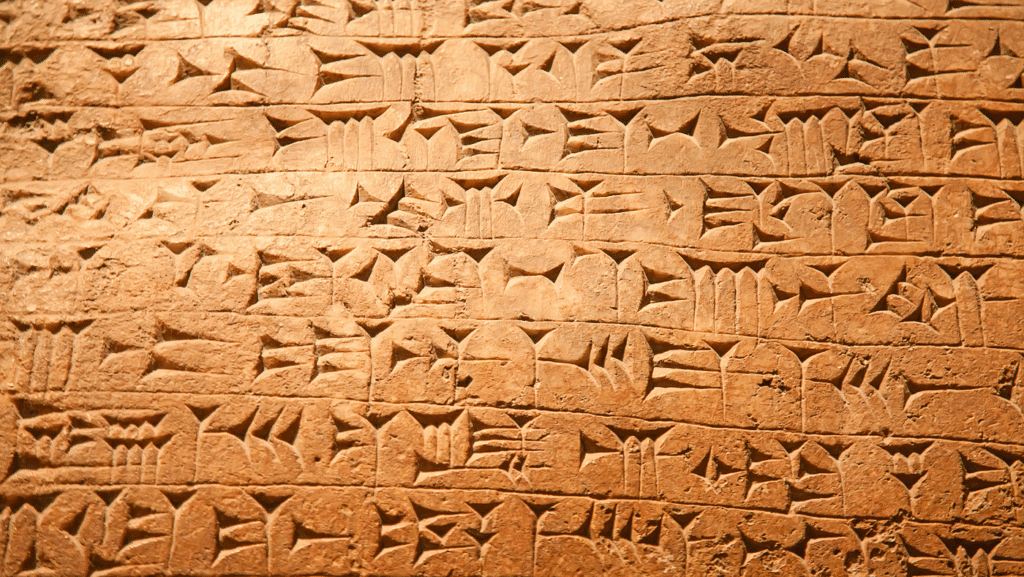The Mystery of the Anunnaki
The Sumerians, one of the world’s first civilizations, left us thousands of clay tablets. On them, they described powerful beings they called the Anunnaki
Mainstream historians call the Anunnaki gods. In the texts, they appear as rulers, judges, and creators of humanity itself. They decide kingship, divide territories, and even walk among humans.
But here’s the problem. If we strip away the word “god” and just look at what these beings supposedly did, the story feels less like mythology and more like history. What if the Anunnaki weren’t gods at all… but survivors of a lost civilization? Humans who lived through catastrophe and passed their knowledge to people who had to start over from nothing.
Survivors, Not Gods
Imagine the world after disaster. The Younger Dryas period, around 12,000 years ago, brought rapid climate change, flooding, and mass extinctions. Scientists still debate what caused it, but whatever happened, it shook human history.
Now picture a small group of people who carried advanced knowledge through that chaos. They understood farming, stonework, navigation, and astronomy. To other groups trying to rebuild after near-extinction, they would have looked like gods.
Knowledge equals power. And when one group holds knowledge no one else has, stories form. Over time, memory turns human teachers into divine rulers. That could explain why the Sumerians recorded the Anunnaki as the ones who established kingship and taught humanity.
The Cargo Cult Connection
Skeptical? Let’s jump to the 20th century.
During World War II, remote tribes in the Pacific suddenly saw soldiers arriving with planes, radios, and endless supplies. To the tribes, this technology looked supernatural. They didn’t understand factories, logistics, or global war. All they saw were “sky beings” dropping gifts from above.
The result? The “cargo cults.”
Tribes started worshipping the soldiers and built mock airstrips out of dirt. They carved wooden rifles and wore makeshift uniforms. They believed these rituals would bring the planes back, loaded with “cargo” from the sky.

The soldiers weren’t gods. They were just humans with advanced tools. But perception turned them into something divine.
Now, look at Mesopotamia. Imagine survivors of a pre-flood civilization arriving with farming techniques, knowledge of the stars, and the ability to organize society. To the people around them, they would have seemed like supernatural beings. Just like the soldiers did to the Pacific tribes.
That’s the power of perception. Advanced humans look like gods to those without the same knowledge.
What the Sumerian Texts Say

Sumerian tablets describe the Anunnaki as beings who came down to Earth, established kingship, divided up regions, and passed on laws. They weren’t described as formless spirits. They acted like rulers.
Even more telling, their names appear linked to specific cities: Enki in Eridu, Enlil in Nippur, Inanna in Uruk. They had territories, homes, and responsibilities. That doesn’t sound like mythology. That sounds like leadership.
If these figures were real, they may not have been gods at all, but advanced humans guiding less developed groups after a catastrophe.
Myths Across the World
Here’s where it gets even harder to dismiss. The Sumerians weren’t the only culture with stories like this.
- In Mesoamerica, the Maya and Aztecs spoke of Quetzalcoatl, a bearded man who came from across the sea to bring knowledge.
- In Egypt, Thoth was credited with giving writing and wisdom.
- In India, the gods brought advanced astronomy and architecture.
- Across almost every culture, there’s a flood myth: a great disaster that wiped out most of humanity, followed by the arrival of knowledge-bringers.
Different continents. Different languages. Same story: catastrophe, survival, teachers mistaken for gods.
That feels less like coincidence and more like collective memory.
Rethinking the Anunnaki
Mainstream view is to dismiss these parallels. They say myth is just myth. They argue that the Anunnaki were nothing more than imagined deities, shaped by human creativity.
But myths don’t appear in isolation. They grow from memory, history, and experience. The consistency across cultures points to something deeper.
The Anunnaki might not have been supernatural beings from the sky. They could have been human survivors of a lost civilization. People who carried advanced knowledge into a new world and got remembered as gods.
Why It Matters
If that’s true, then the Sumerians weren’t telling fantasy. They were recording history in the only language they had: myth and symbol.
And if it’s true, we have to rethink everything. How old is civilization? How many advanced cultures have we lost to time? And how many of our myths are actually history hiding in plain sight?
The Real Question about the Anunnaki is
The Anunnaki story forces us to ask: are we missing an entire chapter of human history?
If survivors of a lost past passed on their knowledge, then our ancestors didn’t imagine gods. They remembered people.
And if that’s the case, how much of what we call “mythology” is really forgotten history?
Want to know more about the Anukkaki then click here for more content